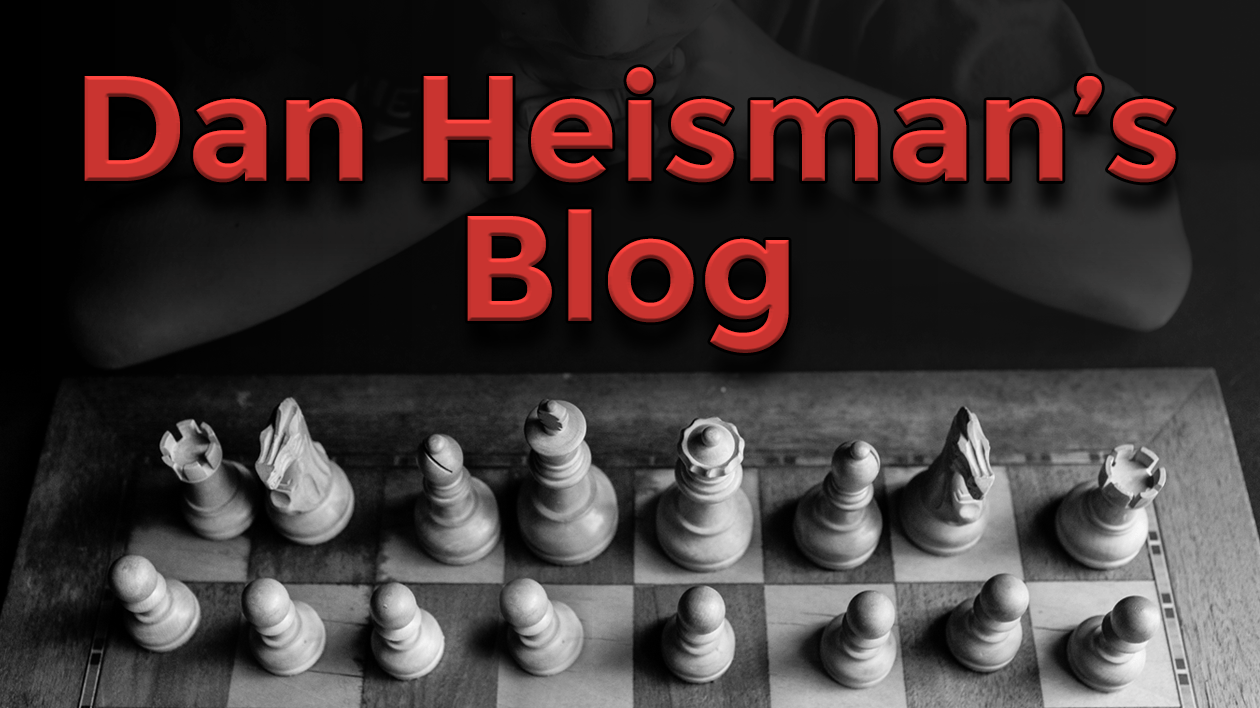
There's Not Always A Clearly Best Move or Idea
In previous articles, I have dealt with the fact that there's not always one single correct thought process that covers all situations (positions; time control issues), and I've also dealt with issues when a player states "I reach positions where I don't know what to do."
But there is a third key "don't know" issue, which is that in many positions there is no single correct move or plan (and, of course, in many there are - see most puzzles!).
In his wide-ranging book Chess for Zebras, GM Rowson has a chapter "Psycho-Logics" and, within that Chapter, there is a section "The Importance of Not Having A Clue". In that section he makes a statement in bold which I would like to repeat:
"the stronger a player is, the more likely he is to begin by saying "I don't know" when you ask him what is happening in a position."
There are several reasons for this, but one is that many positions contain several issues and factors (imblances, to use the Silman term) that could be dealt with by a variety of logical/reasonable moves and ideas. Sometimes the best idea requires a specific move order or plan (most likely in a combination or in the endgame), but other times the position is much more fluid and a variety of moves and plans might all be reasonable. The key is that to assume a priori that there is always only one right move and plan is a falsehood that will make your thought process and analysis, not to mention your ability to finally decide on a move, much more difficult.
In the middlegame, if the position is objectively equal, there may be a variety of moves that will keep it about equal. In an endgame which is drawn, there may be multiple paths (with possibly more than one initial move) to achieving that draw. If you give a position to a computer engine and ask it to display the top several moves and these moves end up separated by about a tenth of a pawn or less, it is likely that any of them are reasonable and, in most senses, equally good. So, in these situations, if you don't know what to do and end up picking any of these moves, that's quite OK, despite what doing lots of Solitaire Chess (where you are often asked to find the "right" moves and are penalized if you don't) may lead you to believe.
Here's an example. In the following opening (shown after Black's 7th move) my student had trouble figuring out what to do on a number of moves.
I gave this position to Houdini 3 and let it show me the top six moves.
At 22 ply there was about a 0.15 pawn difference between the top move and the sixth move, and it stayed that way for most of the opening.
In all the lines presented White eventually got his kingside pieces out and, despite Black's menacing pawn storm, often castled that side. But that's not the point. The point was that on most moves White had a choice of several ideas and continuations that were reasonable and led to a slight advantage. In lines where Black played ...Bxc3+ bxc3 and gave up the bishop pair, then White eventually playing c4xd5 to undouble the pawns open up the position for the bishops was usually best and logical, but even that was not absolutely necessary. This is not at all surpising for a "normal" opening position where there are not many threats and several pieces left to activate.
In these types of positions, for me to suggest to a student that he didn't find my (or "the right") idea would be to send the wrong message. I know this particular student wanted me to teach him how to find that right move in this opening, but I had to admit that if he just kept developing his pieces and did it reasonably without wasting time, there was many ways to skin this cat.
So, while puzzles often pyschologically prepare us to find those "best" moves and sometimes your criticality assessment tells you that you must do exactly that, it is important to keep in mind that sometimes looking for the exact right move (or plan) will not only waste time, but could be a futile effort since "any among equals" in many cases might be a more reasonable goal.